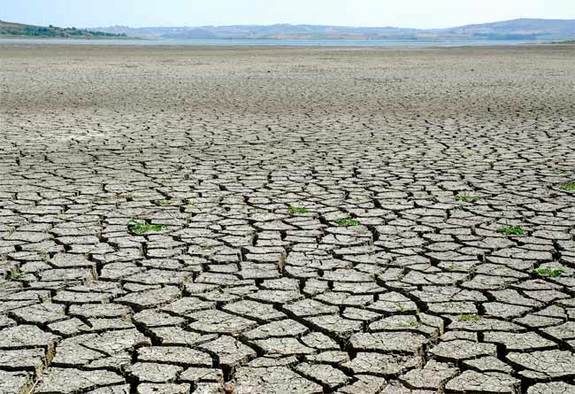Decade of Extreme Weather Bears Fingerprint of Climate Change

Droughts, heat waves, flooding — humanity has faced the effects of extreme, disastrous weather throughout history. But this past decade set itself apart — thanks, at least in part, to human-caused climate change, according to scientists.
Last year, the United States saw 14 weather-related events that cost at least $1 billion apiece; in 2003, Europe sweltered through its hottest summer in at least 500 years; in 2010, record rainfall brought the worst flooding in Pakistan's history; and the list from recent years goes on.
These events occurred during a decade ranked as likely the warmest for at least the past 1,000 years, according to Dim Coumou and Stefan Rahmstorf, of the Potsdam Institute for Climate Impact Research in Germany.
Is there a connection between the warming world and extreme weather? Most likely yes, say Coumou and Rahmstorf.
"It is very likely that several of the unprecedented extremes of the past decade would not have occurred without anthropocentric global warming," they write in a study published Sunday (March 25) in the journal Nature Climate Change. [Quiz: Test Your Weather Smarts]
Connecting weather with climate change is tricky — climate scientists routinely say they cannot attribute a particular event to human-caused climate change. However, over time, global warming is expected to result in a shift in the odds of extreme events.
Coumou and Rahmstorf, like other climate scientists, use the metaphor of a loaded die: The results of one roll may or may not be the result of the manipulated die. But after many rolls, the skewed results become evident.
Get the world’s most fascinating discoveries delivered straight to your inbox.
To find the fingerprints of climate change, they reviewed extreme weather events going back to 2000 as well as research into possible connections with global warming. The latter includes computer modeling studies, such as one from 2004 that found the risk of a heat wave of the magnitude of Europe's 2003 scorcher has likely quadrupled as a result of humanity's effects on climate.
The duo say they found the fingerprint of climate change on unprecedented heat waves and extreme rainfall over the past decade. As for big storms — tropical cyclones and hurricanes, including Hurricane Katrina in 2005 — the evidence is mixed, they find.
The link between extreme weather and climate change isn't new. A recent report by the Intergovernmental Panel on Climate Change identified an increase in hot days, heat waves and heavy precipitation and predicted more to come as a result of global warming.
You can follow LiveScience senior writer Wynne Parry on Twitter @Wynne_Parry. Follow LiveScience for the latest in science news and discoveries on Twitter @livescience and on Facebook.



